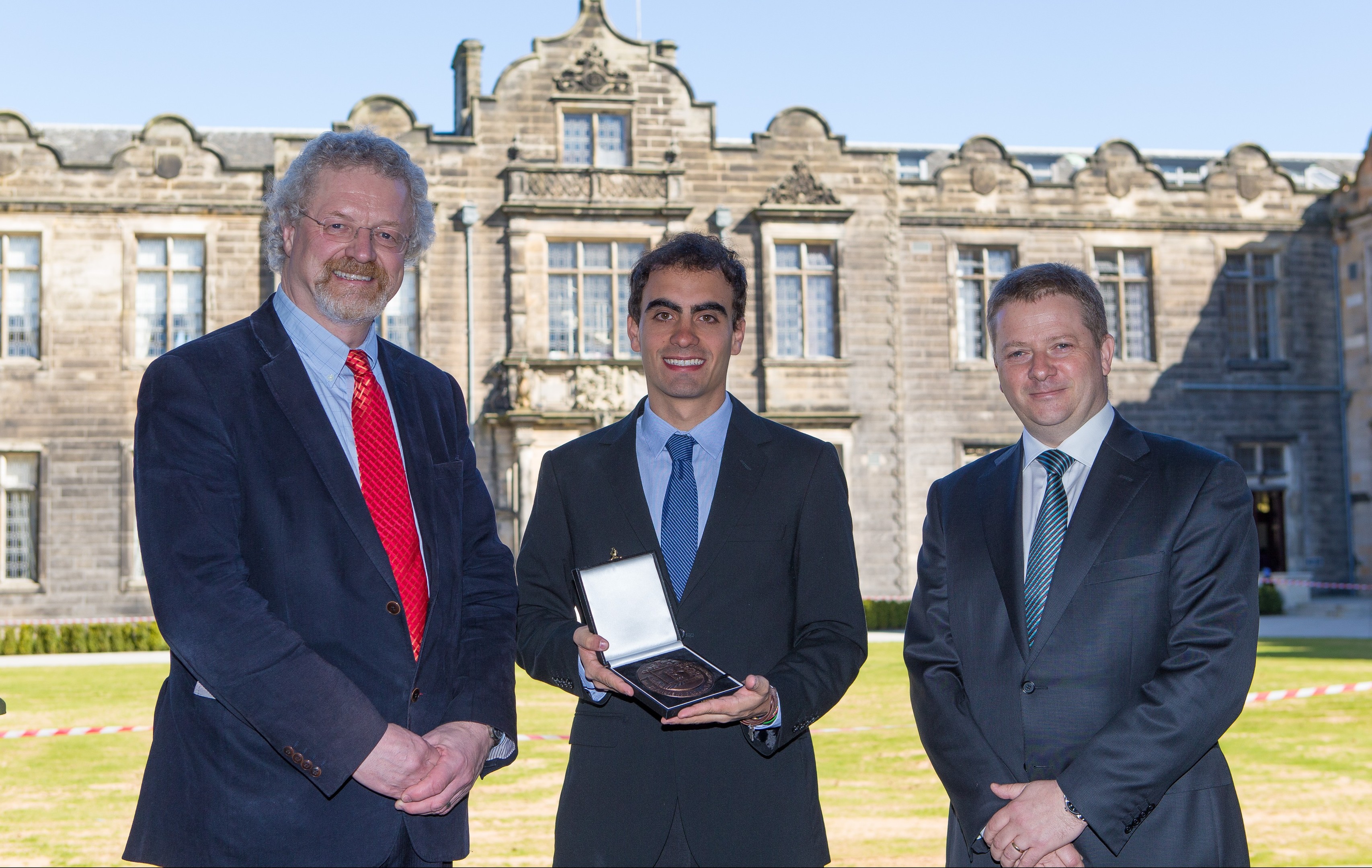A project which aims to empower communities without electricity in Brazil by teaching them how to create light sources has won this year’s St Andrews Prize for the Environment.
At a ceremony at St Andrews University, the Liter of Light initiative was unveiled as the winner of the prestigious $100,000 prize which attracts entries from across the globe.
With 1.3 billion people across the world and more than three million in Brazil suffering from energy poverty, Liter of Light Brazil aims to provide sustainable lighting, free of charge, to simple dwellings.
The simple device consists of a plastic bottle filled with water and bleach, fitted through the roof of a home to refract sunlight, and provides the same amount of light as a 55 watt light bulb and produces zero carbon emissions.
Vitor Belota Gomes, president of Liter of Light Brazil, accepted the prize and confirmed that those behind the initiative aim to take the project to the communities of Dominguinhos, Bararuá, Jacarezinho and São Jorge do Membeca which are positioned along the riverside of the Amazon.
“We will now be able to expand our efforts in Brazil and bring light to those who need it most – families living in isolated in riverine communities in the Amazon,” he said.
“Sometimes we don’t realise how important light is for our lives, how it makes it possible for a child to read a book during the night, for parents to cook a meal or a doctor to treat the ill.
“This support from the St Andrews Prize for the Environment will help us improve peoples’ lives and it will make a real difference within these communities.”
The St Andrews Prize for the Environment is a joint environmental initiative by the University of St Andrews in Scotland and independent exploration and production company ConocoPhillips.
The Prize focuses on sustainability, conservation, biodiversity stewardship and community development supporting a wide range of projects from around the world on diverse topics including sustainable development, urban re-generation, recycling, health, water and waste issues, renewable energy and community development.
Professor Garry Taylor, acting principal and vice-chancellor of the University of St Andrews, said this year’s recipient was a worthy one.
He explained: “There are few issues of greater importance than the impact of climate change on our fragile environment and on some of the world’s most vulnerable populations.
“At the University of St Andrews, we are committed to playing our part in addressing global concerns.
“Already we are working towards becoming the UK’s first carbon-neutral university.
“Our ground-breaking research in green energy and environmental protection is bringing new ideas to public policy.
“Meanwhile the St Andrews Prize for the Environment provides a concrete example of the way academic institutions, by working with industry and wider society, can change lives for the better.
“We will follow the work of this year’s winner, Liter of Light Brazil with great interest.”
The Spouts of Water initiative, which aims to provide ceramic water filters in East Africa, and the Mamiraua Institute’s Fishing Management Programme, which aims to increase the population of an endangered species of fish called the Giant Arapaima in the Amazon, were named as runners-up and each received $25,000.





